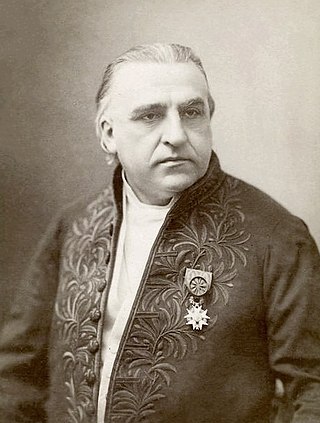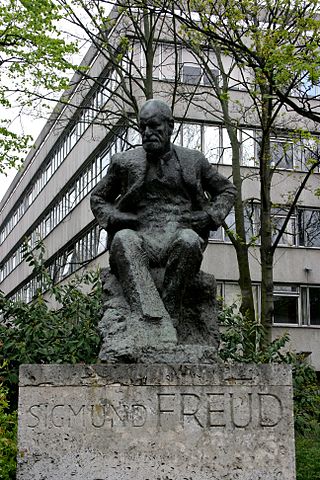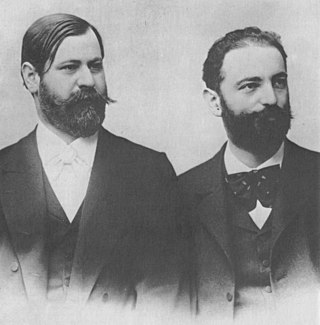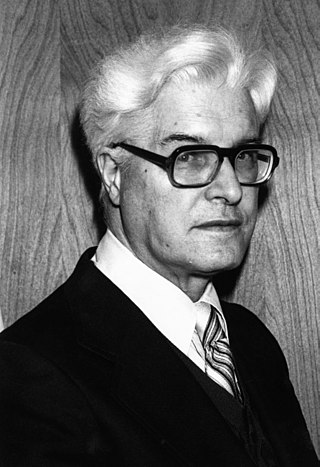Psychoanalysis is a theory developed by Sigmund Freud. It describes the human soul as an apparatus that emerged along the path of evolution and consists mainly of three parts that complement each other in a similar way to the organelles: a set of innate needs, a consciousness that serves to satisfy them, and a memory for the retrievable storage of experiences. Further in, it includes insights into the effects of traumatic education and a technique for bringing repressed content back into the realm of consciousness, in particular the diagnostic interpretation of dreams. Overall, psychoanalysis represents a method for the treatment of mental disorders.

Sigmund Freud was an Austrian neurologist and the founder of psychoanalysis, a clinical method for evaluating and treating pathologies seen as originating from conflicts in the psyche, through dialogue between patient and psychoanalyst, and the distinctive theory of mind and human agency derived from it.

Henry Green was the pen name of Henry Vincent Yorke, an English writer best remembered for the novels Party Going, Living, and Loving. He published a total of nine novels between 1926 and 1952. He is considered as one of the group designated in the 1920s/30s as the 'Bright Young Things' by the tabloid press.

Jean-Martin Charcot was a French neurologist and professor of anatomical pathology. He worked on groundbreaking work about hypnosis and hysteria, in particular with his hysteria patient Louise Augustine Gleizes. Charcot is known as "the founder of modern neurology", and his name has been associated with at least 15 medical eponyms, including various conditions sometimes referred to as Charcot diseases.
Herbert "Harry" Stack Sullivan was an American Neo-Freudian psychiatrist and psychoanalyst who held that "personality can never be isolated from the complex interpersonal relationships in which [a] person lives" and that "[t]he field of psychiatry is the field of interpersonal relations under any and all circumstances in which [such] relations exist". Having studied therapists Sigmund Freud, Adolf Meyer, and William Alanson White, he devoted years of clinical and research work to helping people with psychotic illness.

Sebastian Charles Faulks is a British novelist, journalist and broadcaster. He is best known for his historical novels set in France – The Girl at the Lion d'Or, Birdsong and Charlotte Gray.

Birdsong is a 1993 war novel and family saga by the English author Sebastian Faulks. It is Faulks's fourth novel. The plot follows two main characters living at different times: the first is Stephen Wraysford, a British soldier on the front line in Amiens during the First World War, and the second is his granddaughter, Elizabeth Benson, whose 1970s plotline follows her attempts to recover an understanding of Stephen's experience of the war.

The Tavistock and Portman NHS Foundation Trust is a specialist mental health trust based in north London. The Trust specialises in talking therapies. The education and training department caters for 2,000 students a year from the United Kingdom and abroad. The Trust is based at the Tavistock Centre in Swiss Cottage. The founding organisation was the Tavistock Institute of Medical Psychology founded in 1920 by Hugh Crichton-Miller.

Wilhelm Fliess was a German otolaryngologist who practised in Berlin. He developed the pseudoscientific theory of human biorhythms and a possible nasogenital connection that have not been accepted by modern scientists. He is today best remembered for his close friendship and theoretical collaboration with Sigmund Freud, a controversial chapter in the history of psychoanalysis.

Madness and Civilization: A History of Insanity in the Age of Reason is an examination by Michel Foucault of the evolution of the meaning of madness in the cultures and laws, politics, philosophy, and medicine of Europe—from the Middle Ages until the end of the 18th century—and a critique of the idea of history and of the historical method.
Murray Bowen was an American psychiatrist and a professor in psychiatry at Georgetown University. Bowen was among the pioneers of family therapy and a noted founder of systemic therapy. Beginning in the 1950s he developed a systems theory of the family.

George Jack Makari is a psychiatrist and historian. He serves as director of the DeWitt Wallace Institute of Psychiatry: History, Policy, and the Arts, which encompasses the Oskar Diethelm Library at Weill Cornell Medical College, where he is also a Professor of Psychiatry. Makari's work has been widely reviewed, and he is well known among historians of the mind sciences, psychiatry, and psychoanalysis for Revolution in Mind, The Creation of Psychoanalysis and Soul Machine: The Invention of the Modern Mind. His recent work, Of Fear and Strangers: A History of Xenophobia, won the 87th annual Anisfield-Wolf Book Award in the nonfiction category. He was the Director and Attending Psychiatrist of a sliding scale Psychotherapy Clinic at Payne Whitney Clinic from 1991-2016.

Since the founding of the Church of Scientology in 1954 by L. Ron Hubbard, the relationship between Scientology and psychiatry has been dominated by strong opposition by the organization against the medical specialty of psychiatry and of psychology with themes relating to this opposition occurring repeatedly throughout Scientology literature and doctrine. According to the Church of Scientology, psychiatry has a long history of improper and abusive care. The group's views have been disputed, criticized, and condemned by experts in the medical and scientific community and have been a source of public controversy.

Frederick Campbell Crews was an American essayist and literary critic. Professor of English at the University of California, Berkeley, Crews was the author of numerous books, including The Tragedy of Manners: Moral Drama in the Later Novels of Henry James (1957), E. M. Forster: The Perils of Humanism (1962), and The Sins of the Fathers: Hawthorne's Psychological Themes (1966), a discussion of the work of Nathaniel Hawthorne. He received popular attention for The Pooh Perplex (1963), a book of satirical essays parodying various schools of literary criticism. Initially a proponent of psychoanalytic literary criticism, Crews later rejected psychoanalysis, becoming a critic of Sigmund Freud and his scientific and ethical standards. Crews was a prominent participant in the "Freud wars" of the 1980s and 1990s, a debate over the reputation, scholarship, and impact on the 20th century of Freud, who founded psychoanalysis. In 2017, he published Freud: The Making of an Illusion.

Henri Frédéric Ellenberger was a Canadian psychiatrist, medical historian, and criminologist, sometimes considered the founding historiographer of psychiatry. Ellenberger is chiefly remembered for The Discovery of the Unconscious, an encyclopedic study of the history of dynamic psychiatry published in 1970.
The classification of mental disorders, also known as psychiatric nosology or psychiatric taxonomy, is central to the practice of psychiatry and other mental health professions.

Devil May Care is a James Bond continuation novel written by Sebastian Faulks. It was published in the UK by Penguin Books on 28 May 2008, the 100th anniversary of the birth of Ian Fleming, the creator of Bond. The story centers on Bond's investigation into Dr. Julius Gorner, a megalomaniac chemist with a deep-seated hatred of England.

Psychiatry is the medical specialty devoted to the diagnosis, prevention, and treatment of deleterious mental conditions. These include various matters related to mood, behaviour, cognition, perceptions, and emotions.

The War of the Worlds is a science fiction novel by English author H. G. Wells. It was written between 1895 and 1897, and serialised in Pearson's Magazine in the UK and Cosmopolitan magazine in the US in 1897. The full novel was first published in hardcover in 1898 by William Heinemann. The War of the Worlds is one of the earliest stories to detail a conflict between humankind and an extraterrestrial race. The novel is the first-person narrative of an unnamed protagonist in Surrey and his younger brother who escapes to Tillingham in Essex as London and Southern England are invaded by Martians. It is one of the most commented-on works in the science fiction canon.
Kerry Jeff Sulkowicz is an American psychiatrist and psychoanalyst. A clinical professor of psychiatry at NYU Langone Medical Center, Sulkowicz is the founder and managing principal of Boswell Group LLC, which advises boards of directors, CEOs, and other executives on the psychology of leadership. A profile in Psychiatric Times described him in 2014 as "one of the most sought after psychoanalysts in the world."















